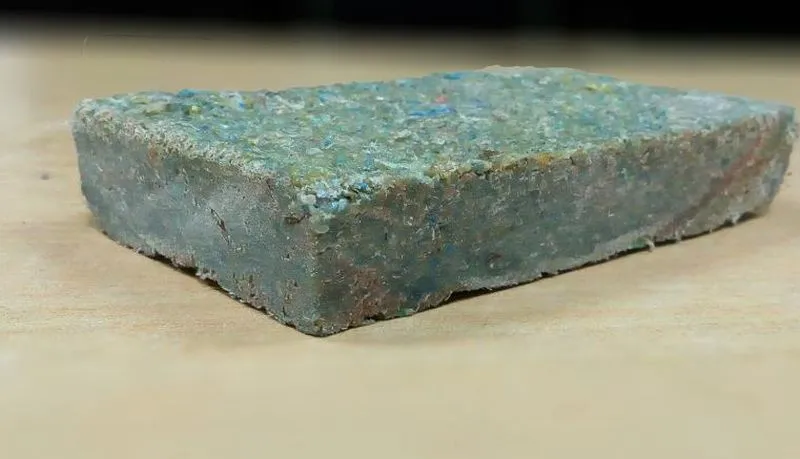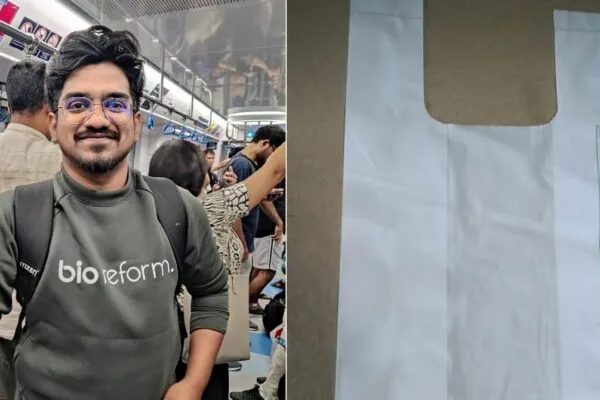Indian Engineer Makes Bricks from Plastic Waste for Sustainable Construction
After visiting a brick kiln and noticing the abysmal working conditions, 22-year-old innovator Abhishek Banerjee was fueled with the desire to change the socio-environmental scenario in West Bengal, India. And to do so, he was required to replace the burnt-clay bricks with an environmentally-friendly alternative.

Plastiqube – a construction brick completely made from plastic waste / Image: CNN
Burnt-clay bricks are one of the most preferred construction materials in India. While the brick kilns have provided employment to the millions of people, it has contributed to air pollution and many health problems among workers.
Besides air pollution, India is also suffering from the problem of plastic pollution. The country contributes an estimated 25,000 tons of plastic waste to landfills every day. Over 40 percent of this waste ends up in the rivers and oceans.
Also Read: Stubble Burning in North India Causes Severe Air Pollution in Delhi
Tackling both the issues in one alternative, Abhishek-led social enterprise Qube is creating eco-friendly bricks out of plastic waste. To tackle the menace of plastic pollution four engineering graduates from Jadavpur University came together to form the social enterprise Qube.
Banerjee, along with his friends Agnimitra Sengupta, Ankan Podder and Utsav Bhattacharyya, founded Qube in 2007. With a vision to eliminate plastic waste from the environment, Qube makes Plastiqube construction bricks that are made entirely of plastic waste. Discarded plastic bottles, polythene bags, and plastic containers make up the main ingredients of these bricks.
The team has collaborated with waste collectors to source plastic waste from local dustbins and junkyards. The plastic is then washed, shredded and compressed into bricks. According to preliminary analysis, the production cost of Plastiqube is 5-6 rupees, while burnt-clay brick sells for 10 rupees apiece.
These bricks are durable, lightweight, and cost-efficient, made possible by thermal and sound insulation. The making of Plastiqube bricks requires about 70 percent less energy than the traditional bricks, thus reducing greenhouse gas emissions.
Abhishek aspires to mass-produce Plastiqube, but just like any other venture, there are many challenges to overcome for these plastic bricks. The fire resistance of plastic bricks is less than the traditional ones. Hopefully, further advancements in Plastiqube will be a viable solution to cope with air pollution and escalating plastic pollution.
Via: CNN


